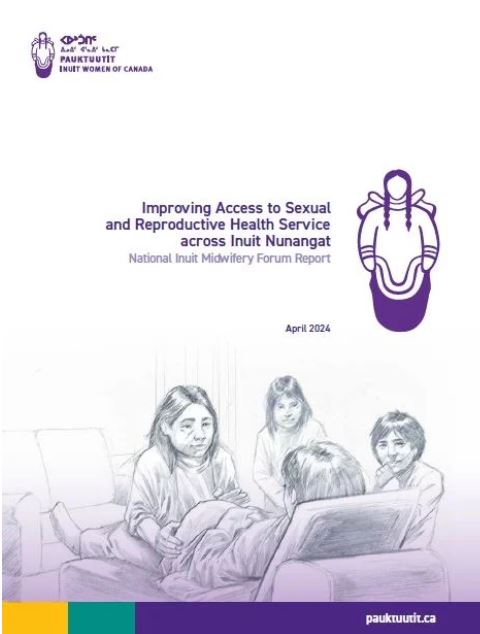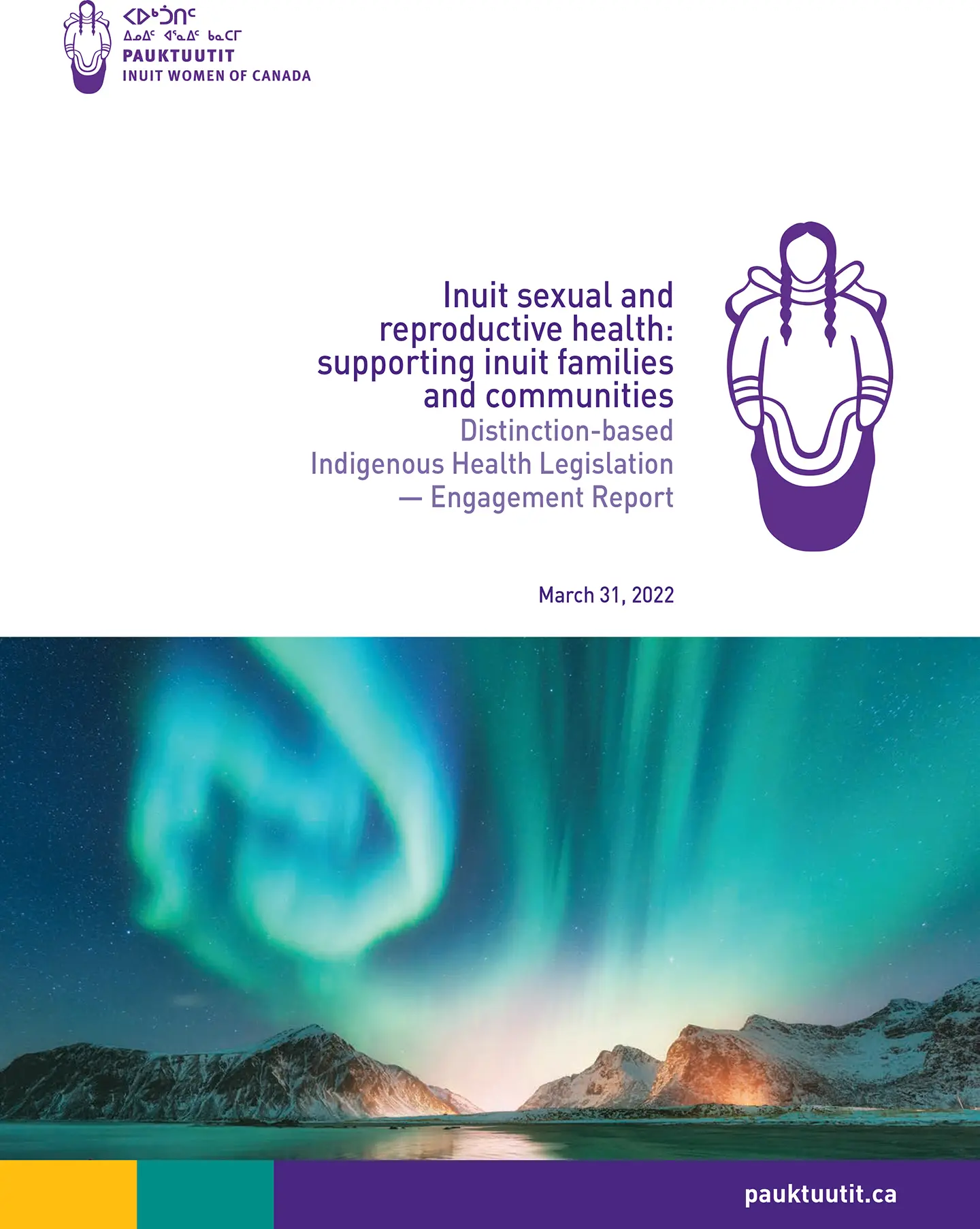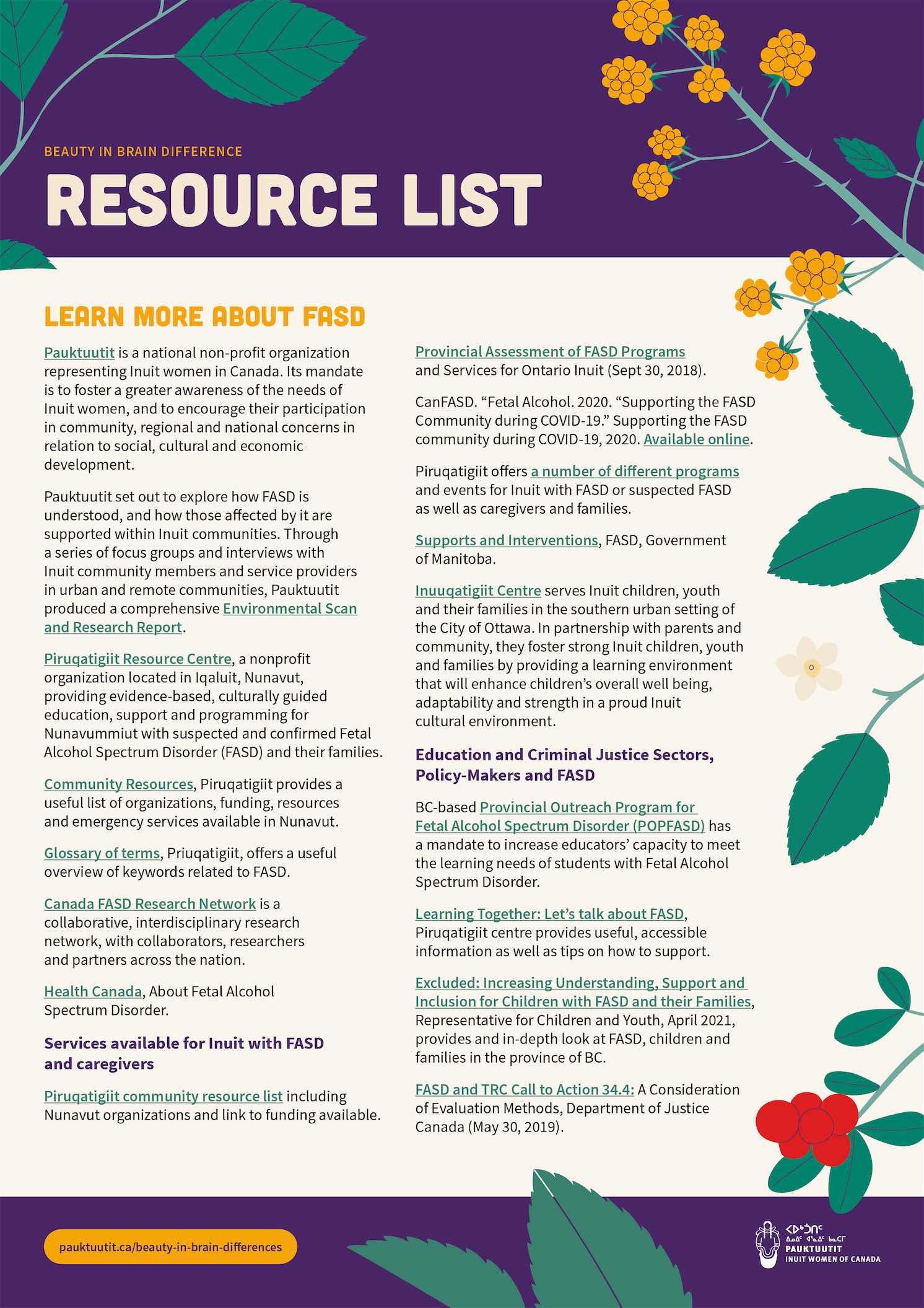Health
Health Care for Inuit Women:
Addressing Systemic Challenges
Inuit women face significant challenges within the Canadian healthcare system, which are exacerbated by systemic injustices and discrimination. From 2017 to 2020, over half (56.5%) of Inuit reported being without a regular healthcare provider. This lack of access to basic healthcare infrastructure forces many Inuit women, girls, and gender-diverse individuals to leave their community to receive basic healthcare. Many encounter racism, violence, and further discrimination when seeking care far from their homes. Pauktuutit Inuit Women of Canada advocates for equitable health services that respect and uphold Inuit culture and practices.
Our Priority Areas
Anti-Indigenous Racism in Healthcare
Pauktuutit is dedicated to addressing anti-Indigenous racism within the medical system. This includes tackling injustices such as coerced sterilization and medical violence. Forcing Inuit women and gender-diverse individuals to leave their communities for basic healthcare is a colonial practice rooted in racism that leads to violence like coerced sterilization. We must educate Canadians and governments about the intersections of colonialism, violence, and health.The denial of basic services harms Inuit women, girls, and gender-diverse individuals.
Equitable Access to Culturally Safe Services
Access to equitable, culturally safe health services is paramount. We are committed to advocating for improved access to culturally informed medical services and addressing the denial of basic health care services across Inuit Nunangat. Inuit voices are integral to health policy discussions. By focusing on Inuit-led health initiatives, we strive to create a system that respects and supports the health needs of our communities.
Revitalizing Inuit Midwifery
Revitalizing Inuit midwifery allows Inuit women to give birth in their communities, close to family, culture, and land. We aim to restore traditional midwifery practices while integrating them with modern doula care systems. We must remove colonial regulatory barriers that prevent Inuit midwives from practicing and developing Inuit-specific education and training programs. It is essential to restore autonomy to families, allowing Inuit women to choose culturally grounded care and avoid the trauma of separation and isolation in unfamiliar health settings.
Access to midwifery services is a reproductive health right
The return of sustainable and traditional Inuit practices and education programs is one of Pauktuutit’s top priorities.



